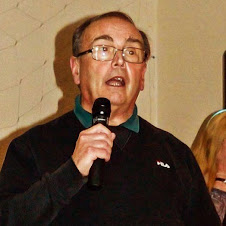When I learned of the murder of Sir David Amess, my heart sank - for more than one reason. I did not share any of Sir David's Conservative political views. He stood for everything I oppose politically, but I totally condemn lethal violence like this. Sir David was entitled to hold his views in our democracy, as are we all. By all accounts, he was a hard-working, deeply religious man who sounded like the kind of person you could get on with socially, if not politically - you could agree to differ with him. The fact that he is mourned by people of all religions and by his political opponents who knew him bears this out. The hearts of every right-thinking person should go out to his family.
The same could be said about the late Jo Cox, MP. I shared many of her political beliefs, as did many. As a dedicated Labour MP, as a passionate Remainer in the EU Referendum, she did not appeal to many in her constituency and, as we know, one of them took her life in a savage and brutal assassination. Her tragic death shares many features with the murder of Sir David Amess : the randomness, the attack by a stranger, the victim's popularity with everyone, the loving families left to grieve, etc...
I would like to focus here, however, upon the wider significance, as I see it, of Sir David's death. The day he was slain, I said that it was a black day for British democracy. It was, but it was also a black day for democracy worldwide. I saw it as a continuation of a trend that I noted back in March following the criminal attack by a mob on the US Capitol building. When I first learned of it, I thought of the attack as a purely American phenomenon. Upon reflection, I saw that it was part of a worldwide trend. I compared what had happened in the US Capitol to three assaults on democratic rights and institutions in three other countries and continents: the military coup in Myanmar , human rights abuse in the one-time democracy of Venezuela and right here in the UK, with the passing of the Police Bill.
Nothing has happened since March to dispel my pessimism. The news from the US has not been cheerful. I did not know until recently how the beleaguered police who fought to defend the Capitol suffered. 140 were injured and one, Officer Brian Sicknick (pictured), died the day after the riot. Four police officers who were present during the attack have since committed suicide. Happily, we saw President Joe Biden elected, but, from conversations with American friends, I am aware that the pro-Trump, anti-democratic coalition in the US remain a potent threat. They are well organised, well financed and have a plentiful supply of firearms.
In Myanmar, the junta have tightened their grip with absolute ruthlessness. Over 1000 people have been killed, including 75 children. Thousands of opponents of the military languish in prison, and many face the risk of torture, according to human rights organisations and Al-Jazeera.
Things aren't improving in Venezuela. Amnesty International reports that state-sponsored killing of political undesirables continues:
"The crimes documented did not take place at random, nor were they isolated. They formed part of an attack planned and led by the security forces against individuals identified as or perceived to be opponents, particularly in impoverished areas, with the objective of neutralising or eliminating them."




